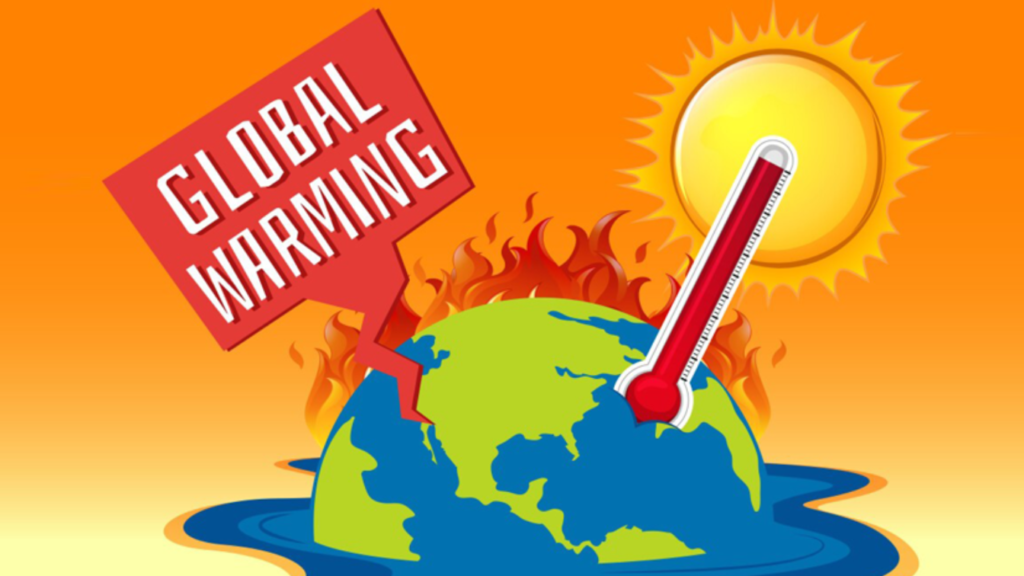Global warming is the gradual increase in Earth’s average surface temperature, mainly due to human activities such as the burning of fossil fuels and deforestation. This rise in temperature is caused by the buildup of greenhouse gases like carbon dioxide, methane, and nitrous oxide, which trap heat in the atmosphere. As industries grow and energy demands rise, more greenhouse gases are released, intensifying the natural greenhouse effect and leading to a warmer planet.
The effects of global warming are becoming increasingly visible across the world. One major impact is the drastic change in weather patterns, resulting in more frequent and intense natural disasters like hurricanes, droughts, floods, and wildfires. These extreme events not only threaten lives but also disrupt economies and destroy natural habitats. Another serious consequence is the melting of ice caps and glaciers, which leads to rising sea levels. This rise threatens to submerge coastal cities and small island nations, displacing millions of people.
Additionally, global warming poses a severe threat to biodiversity. Many animal and plant species are unable to adapt quickly enough to the changing climate, leading to shifts in ecosystems and even extinction. Human health is also at risk, as warmer temperatures contribute to the spread of diseases and create harsher living conditions, particularly for vulnerable populations.
Fighting global warming requires immediate global action. Solutions include reducing greenhouse gas emissions by transitioning to renewable energy sources, protecting and restoring forests, improving energy efficiency, and encouraging sustainable lifestyles. Everyone has a role to play in protecting the planet for future generations. By taking action now, we can slow down global warming and preserve the Earth’s environment for years to come.

